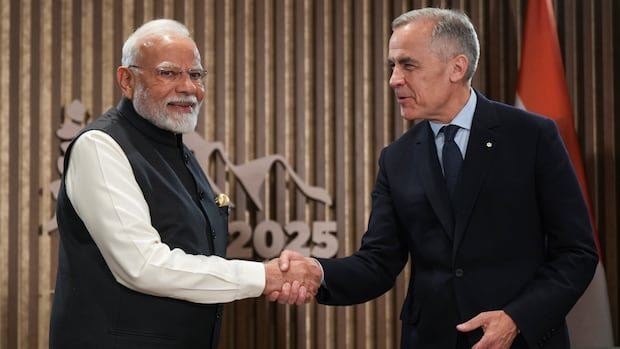Global Affairs Canada has provided clarification on reports from India indicating the readiness of both nations to reinitiate bilateral trade discussions, marking a significant shift following a diplomatic rift stemming from the assassination of a Canadian Sikh leader in Canada two years ago.
India’s ministry of external affairs released a statement confirming that David Morrison, Canada’s deputy minister in the Global Affairs department, engaged in consultations with his Indian counterpart and met separately with Indian Foreign Secretary Vikram Misri. The statement highlighted the mutual agreement to take steps to revive dialogues across various sectors, encompassing trade, defense, energy, civil nuclear, security, law enforcement, critical minerals, space, science, technology, and agriculture, aiming to enhance economic opportunities by addressing capacity-related issues at their respective missions and consulates.
Media reports from India depicted this agreement as an initial move towards resuming trade negotiations. However, in response to inquiries from CBC News, the Canadian government emphasized different priorities from the recent meetings, stating that while trade was discussed, Canada has not engaged in talks with India regarding a free trade agreement under its new mandate. The government reiterated its commitment to bolstering the established commercial trade ties between the two countries.
The statement from Global Affairs Canada did not confirm or elaborate on the consultations led by Deputy Minister Morrison, as reported by India’s ministry of external affairs. Instead, reference was made to a statement issued by Nathalie Drouin, the prime minister’s national security and intelligence adviser, following her discussions with her Indian counterpart, emphasizing mutual commitments to non-interference and information exchange.
The evolving dialogue between Canada and India post the G7 Summit in June, where Prime Ministers Carney and Modi met, has indicated a positive momentum towards repairing bilateral relations. The appointment of new high commissioners and a return to normal service levels at missions were highlighted as crucial steps, with discussions focusing on sovereignty, transnational crime, security, and the rules-based order.
The recent developments in India come on the heels of the two-year anniversary of strained relations between the nations due to the Nijjar murder case, which had led to a halt in trade discussions and escalated tensions with mutual expulsions of diplomats. The subsequent efforts to rebuild ties, including the appointment of new envoys, signify a potential reset in the relationship, despite differing perspectives on the progress of their engagements.
Overall, the recent dialogues and engagements between Canada and India signal a positive trajectory towards thawing relations and fostering cooperation across various sectors, emphasizing shared commitments to mutual respect and collaboration.

